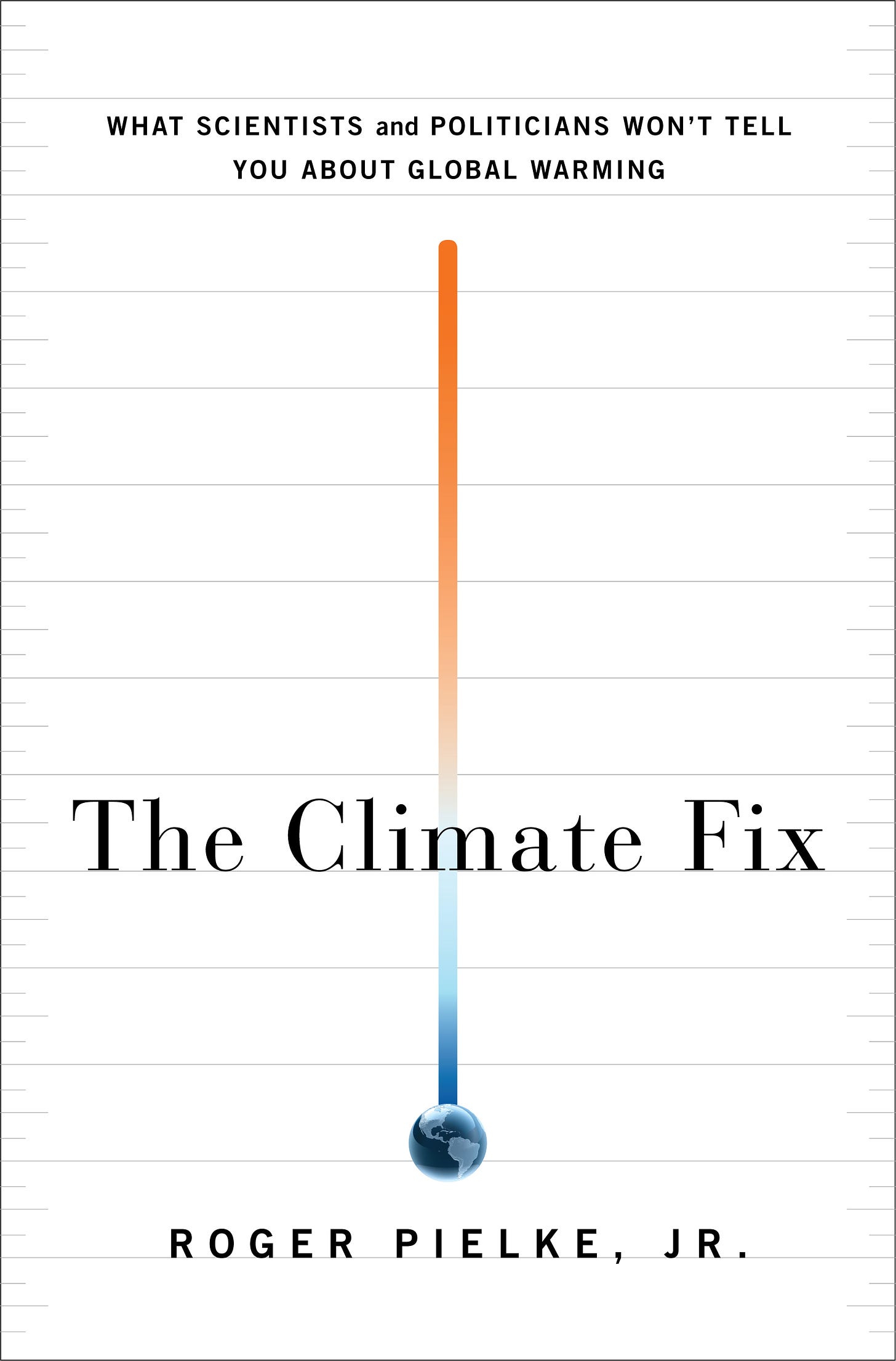Last week’s Q&A was really popular and led to even more Qs coming in. I will make the Q&A an ongoing subject of my weekly memos.
Today I am responding to just one question, and it is one I get a lot. This version comes from Roel P., who also had some kind words to share:
Thank you for all of your illuminating work. I always look forward to your posts because invariably I enjoy them. You say climate change is real and a serious problem. Please elaborate in which way climate change (as opposed to extreme weather) in your view offers serious challenges.
The answer to this question was the subject of Chapter 1 of my book The Climate Fix, which although more than a decade old, remains current in many respects. Today I share a few excerpts from Chapter 1, and for paid subscribers, a complete PDF of the full chapter can be downloaded as a PDF after the jump.
And a reminder for new subscribers — paid subscribers can also download a complete copy of my book, Disasters & Climate Change here.
Over this year I’ll serialize all chapters of The Climate Fix, and I’ll be happy to discuss it and its arguments as we go along. Let’s get to it.
Excerpts from Chapter 1 of The Climate Fix
. . . Because political battles over climate change have been fought through science since 1988, it is easy to lose sight of the fact that adversaries on either side of that debate have agreed about core aspects of the science since that time. As I’ll argue, that core understanding is sufficient to form the basis for a comment sense approach to climate policy. Such an approach will recognize that science can alert us to a potential problem and provide some insight about the consequences of different policy choices, but science cannot decide what choices we ultimately make.
A common sense approach to climate policy will recognize that there are many justifications for addressing the prospects for climate change, and recognize that there are multiple human and non-human influences on climate that should have our attention. For example, in the coming chapters I will introduce a technical concept – decarbonization of the global economy -- that lies at the core of any effort to address increasing amounts of carbon dioxide in the atmosphere. Decarbonization refers to efforts to reduce the amount of carbon dioxide associated with economic activity, recognizing that sustaining economic growth is a priority around the world. The world has been decarbonizing for over a century, and there are good reasons to accelerate that process that have nothing to do with climate science. But I am getting ahead of myself. . .
Perhaps it is one of the unavoidable side effects of being the son of a world-famous atmospheric scientist, but I have never questioned the climatic importance of human emissions of carbon dioxide; its importance has always been something that was accepted by my father and presented in his work. You could say I gained a pretty in-depth understanding of the atmospheric sciences at the dinner table. So the “controversy” over whether carbon dioxide emissions affect climate is not a subject that holds much interest for me, and looking back over my published writings on climate change since 1994, there is a consistent message that carbon dioxide does indeed have significant climatic effects. Obviously, this view came straight from my father, and is widely (if not universally) shared in the atmospheric sciences community.
For instance, in the early 1980s, when my own interests lay far from science and policy, focused instead on soccer and girls, my father wrote an annual article on the atmospheric sciences for the Encyclopaedia Britannica. In his 1985 article he explained that emissions of carbon dioxide to the atmosphere would cause a “net warming of the Earth’s surface” due to the fact that it, and other trace gases, “act to reduce the emission of long-wave radiation out into space yet still permit solar radiation to reach the Earth’s surface. This mechanism of heat increase is referred to as the greenhouse effect. In 1984 he wrote that the consequences of an enhanced greenhouse effect could be profound: “Unless mitigated by other results of human activities, such as reduced sunlight at ground due to additions of aerosols to the upper atmosphere, this warming could result in major changes in climate patterns.” Mitigation typically focused on efforts to limit the accumulation of carbon dioxide in the atmosphere to some upper limit, a challenge described in technical terms as the “stabilization of carbon dioxide concentration.”
Understanding the challenge of stabilizing carbon dioxide levels in the atmosphere at a constant amount is really quite simple . . .




